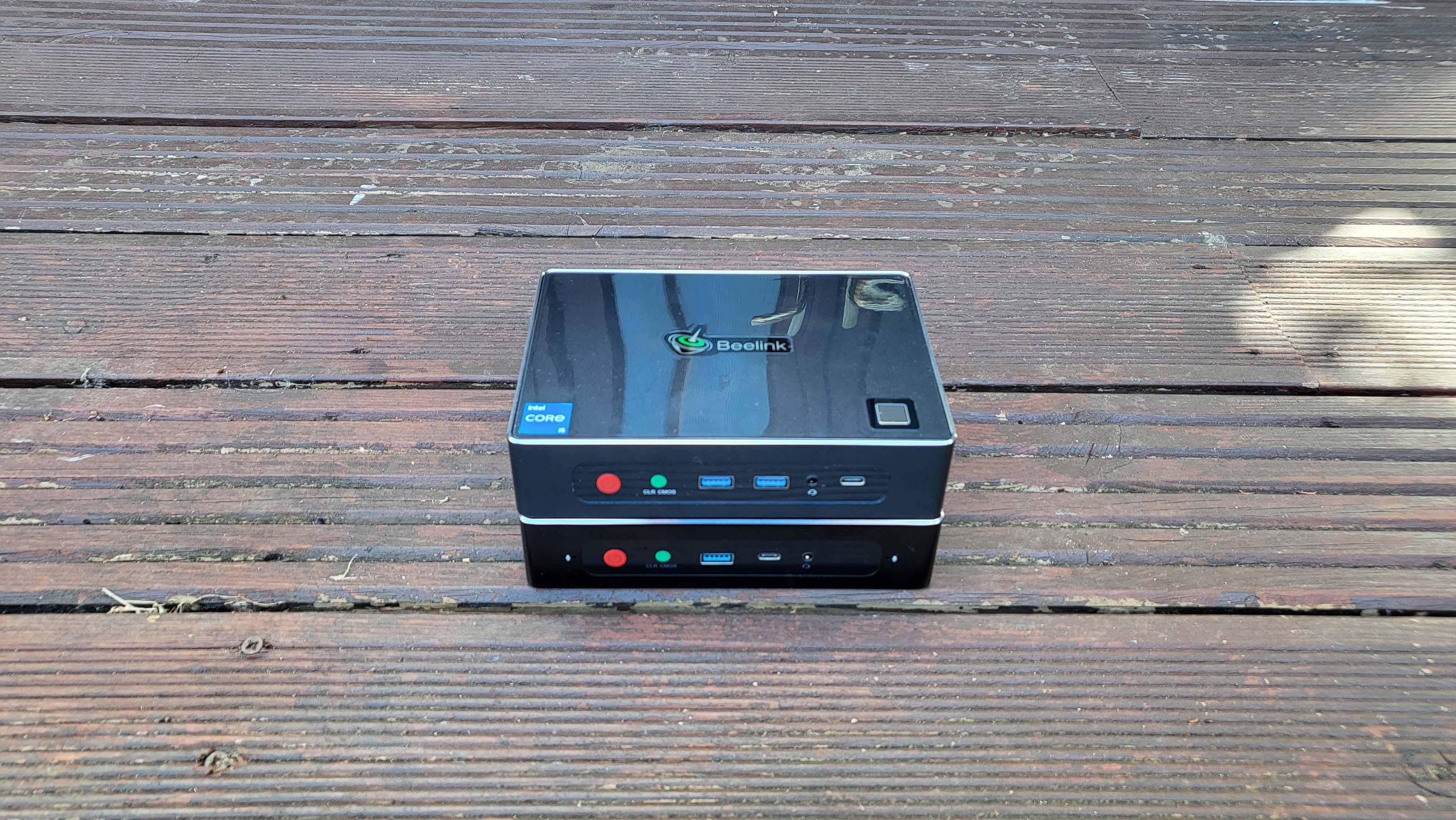TechRadar Verdict
The Beelink GTi11 mini PC workstation is not a bad product per se but it is up against a formidable array of competitors, mostly powered by AMD that have far more oomph and offer better value for money. Consider only if you are an Intel aficionado.
Pros
- +
Great Intel NUC replacement
- +
Dual 2.5GbE LAN ports
- +
Fingerprint reader
- +
Windows 11 Pro
Cons
- -
No Thunderbolt 4 ports
- -
Expensive for what it offers
- -
DisplayPort supports 8K
Why you can trust TechRadar
30-second review
The GTi11 is the most powerful Intel-based mini PC from Beelink and it struggles to tip the value-for-money scale favorably towards it, especially as it doesn’t offer the only major advantage that an Intel platform can currently offer, Thunderbolt 4. Put it simply, Beelink’s AMD-based workstations offer much better value for money albeit at a slightly higher premium.
That doesn’t mean the GTi11 is a bad product, far from that. It is powered by one of Intel’s fastest quad-core mobile processors, has a generous amount of memory and storage plus some great features like dual 2.5GbE LAN port, support for 8K video, a fingerprint reader, dual microphones and much more.
The issue is that for a small premium, Beelink offers the same PC but with an AMD Ryzen 9 4900H, a CPU that’s almost twice as powerful than the Core i5 in the GTi 11 and obliterates it in most benchmarks. This makes it unlikely to make any best workstation list, unless you're dedicated to using Intel.
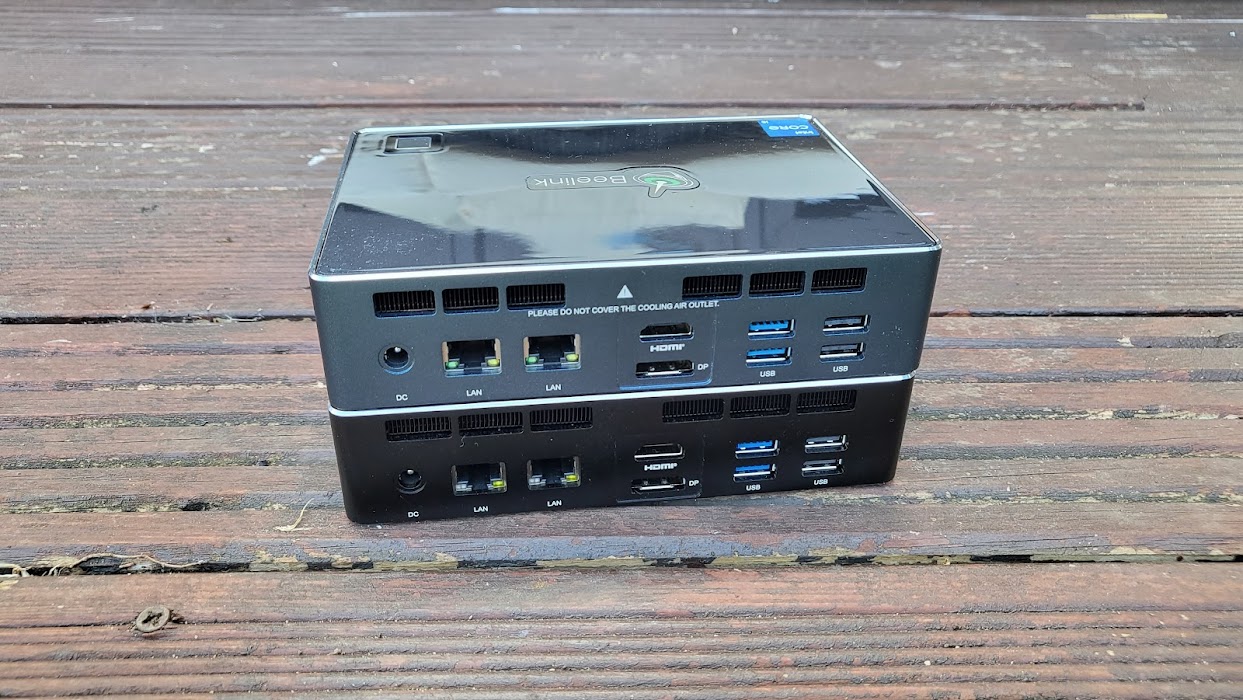
Beelink GTi11: Pricing and availability
The Beelink GTi11 retails for $599 (about £480, UA$835) direct from the manufacturer’s website, this price excludes delivery as well as shipping and delivery fees that may be levied by customs and courier. There’s only one configuration of the GTi11, one with 16GB of RAM and a 500GB SSD.
Beelink GTi11: Design
Beelink used the same reference system for the GTi as it did for the GTR4 and the GTR5 except for the processor. Economies of scale do matter at this end of the market where margins are small. Not that it bothers us. This chassis is a well thought one; plenty of holes to allow for optimal air circulation, a blue metal finish to help with heat dissipation and the chamfered edges enhance the premium appearance of the product.
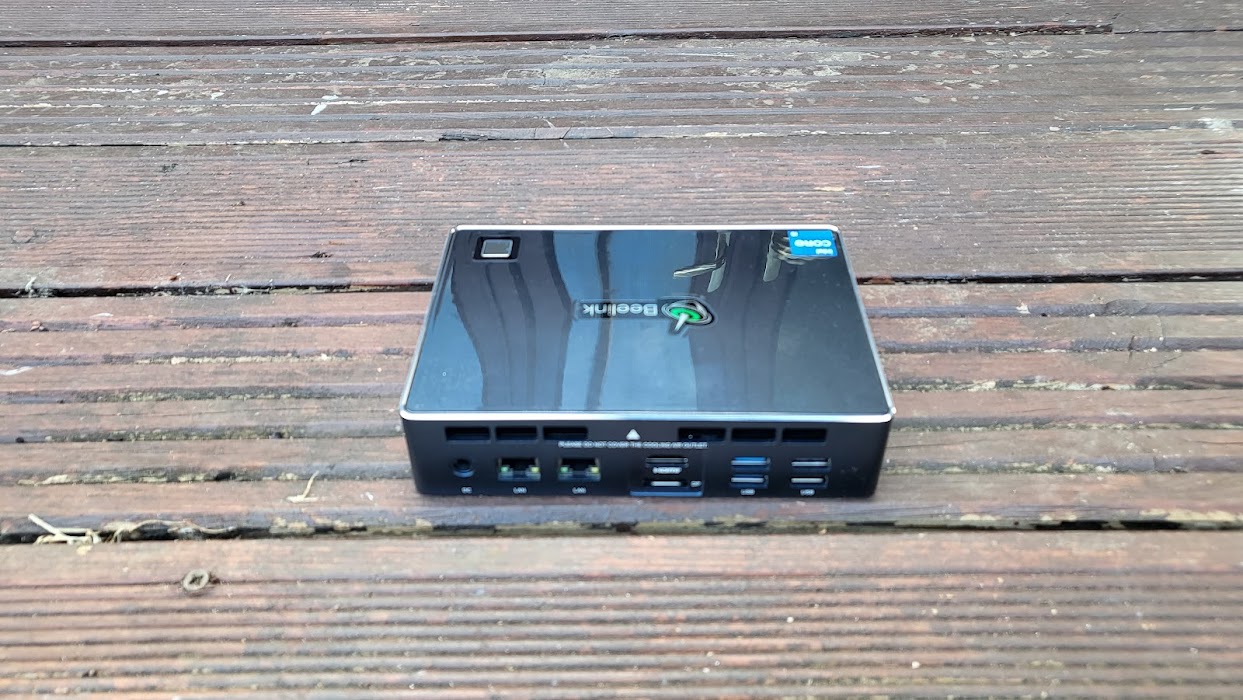
At the rear are two Intel-powered 2.5GbE LAN ports, a barrel type power connector, one HDMI 2.0 port, one full-size DisplayPort, two USB 3.0 and two USB 2.0 ports. The front hosts the power button, a clear CMOS one, two USB 3.0 ports, an audio jack and a type-C connector. We’re obviously disappointed by the lack of Thunderbolt 4 ports which is a serious omission for such a promising platform.
On the top is the Beelink logo - which glows when powered on - and a fingerprint scanner. At 120 x 168 x 39mm, the GTi compared well with other NUC-like mini PCs which generally have a smaller footprint but a thicker profile.
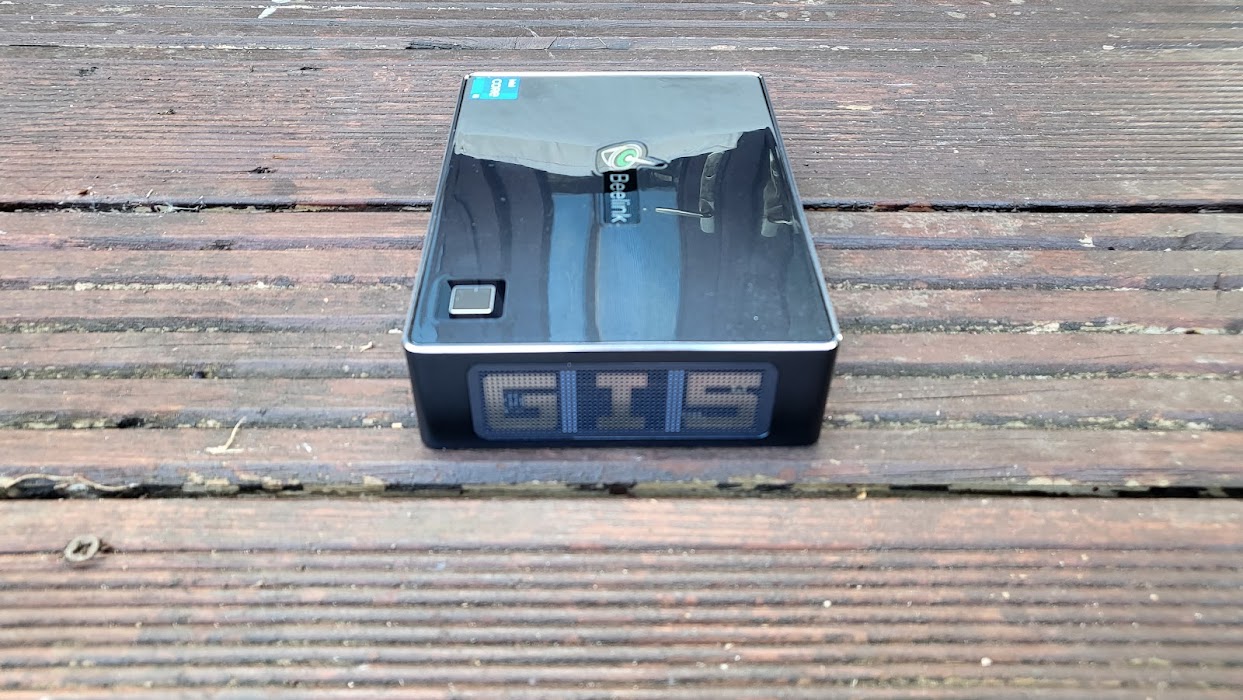
Beelink GTi11: Hardware
CPU: Intel Core i5-1135G7
GPU: Iris Xe
RAM: 16
Storage: 512
Connectivity: Intel AX201
The Intel Core i5-1135G7 CPU at its heart is a popular choice both for mainstream laptops and mini PCs, especially as its Iris Xe GPU is significantly better than previous generation models. It has four cores and eight threads, a rather high TDP of 28W (which explains why there is ample active cooling in the GTi) and 8MB cache.
The rest differs slightly with the models we reviewed previously that use the same chassis. Our test PC had 16GB of Kingston-branded DDR4 3200 RAM (in dual channel mode) and 512GB SSD, a Kingston SA2000M8500G model. However, wireless connectivity is handled by Intel’s very own AX201, which is limited to WiFi-6 and Bluetooth 5.1.
Worth mentioning that the GTi, like its siblings, includes generous internal expansion capabilities. You can add a second SSD and a 2.5-inch SATA SSD/HDD. Not many accessories are included in the box as well; there’s a wall power adapter, two HDMI cables, manuals and a wall-mounted bracket.
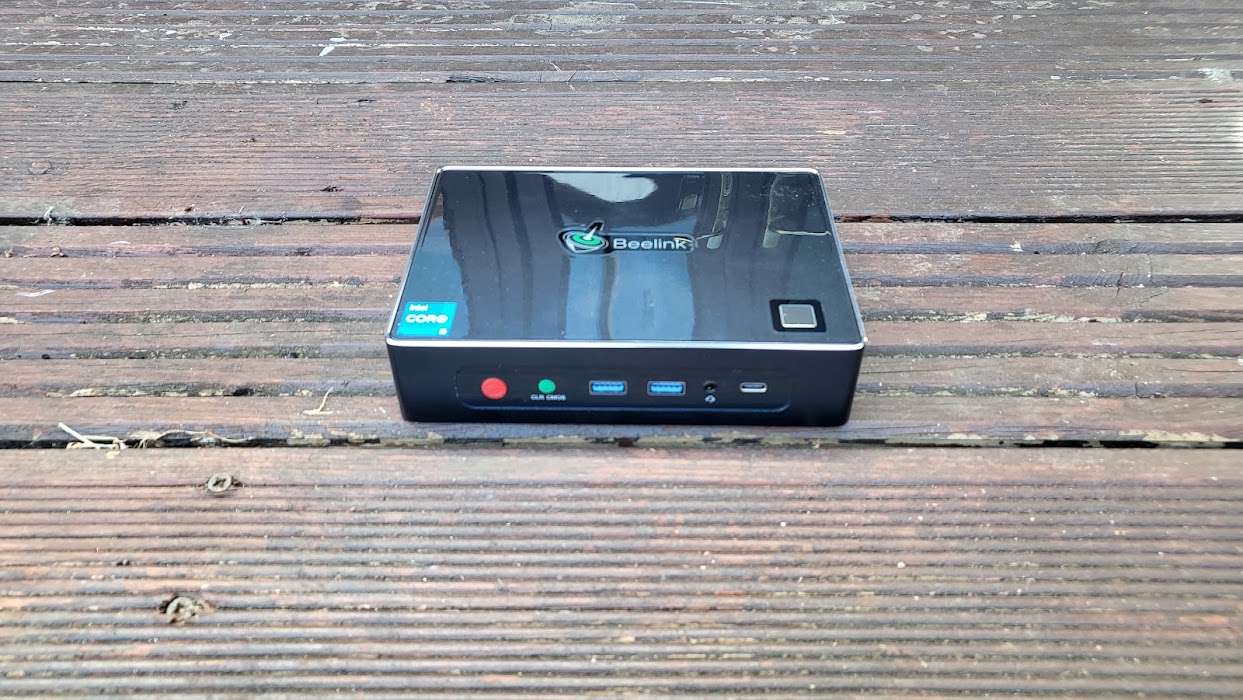
Beelink GTi11: Performance
The overall performance of the GTi is just about commendable. Don’t get me wrong, this little powerhouse will perform admirably with WIndows 11 Pro - its default OS - especially as there’s no bloatware to suck out performance. But there’s only so much a quad-core processor can do, even with a rather good GPU.
The Iris Xe proved to be more than a match for the Radeon GPU that accompanies the Ryzen 7 4800U (as tested inside the Beelink SER4) but that’s about it. It should be more than sufficient for AAA games played at low resolutions (e.g. full HD) on low settings.
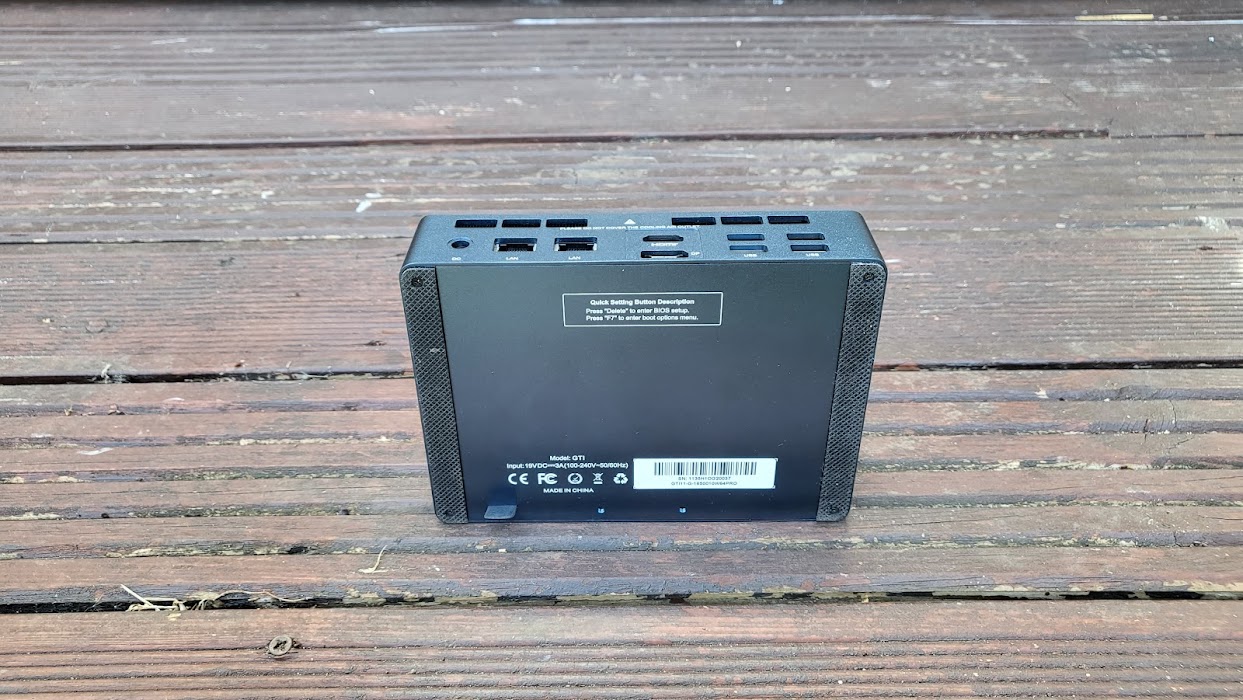
The Intel Core i5-1135G7 is competitive against AMD’s 4xxx series when it comes to single thread performance, but the latter pulls away easily on multi-thread. Storage sub-system performance was surprisingly good, surpassing the Kingston SNVS500G inside the SER5 by a healthy 20 percent in Anvil Pro, a popular storage benchmark.
The lack of extra cores explain why it lags significantly behind Beelink’s other AMD-based offering on Blender and Cinebench, both benchmarks that push the processor to its limits. Speaking of which, the fans make themselves heard when under duress, which was the case during the benchmarks.
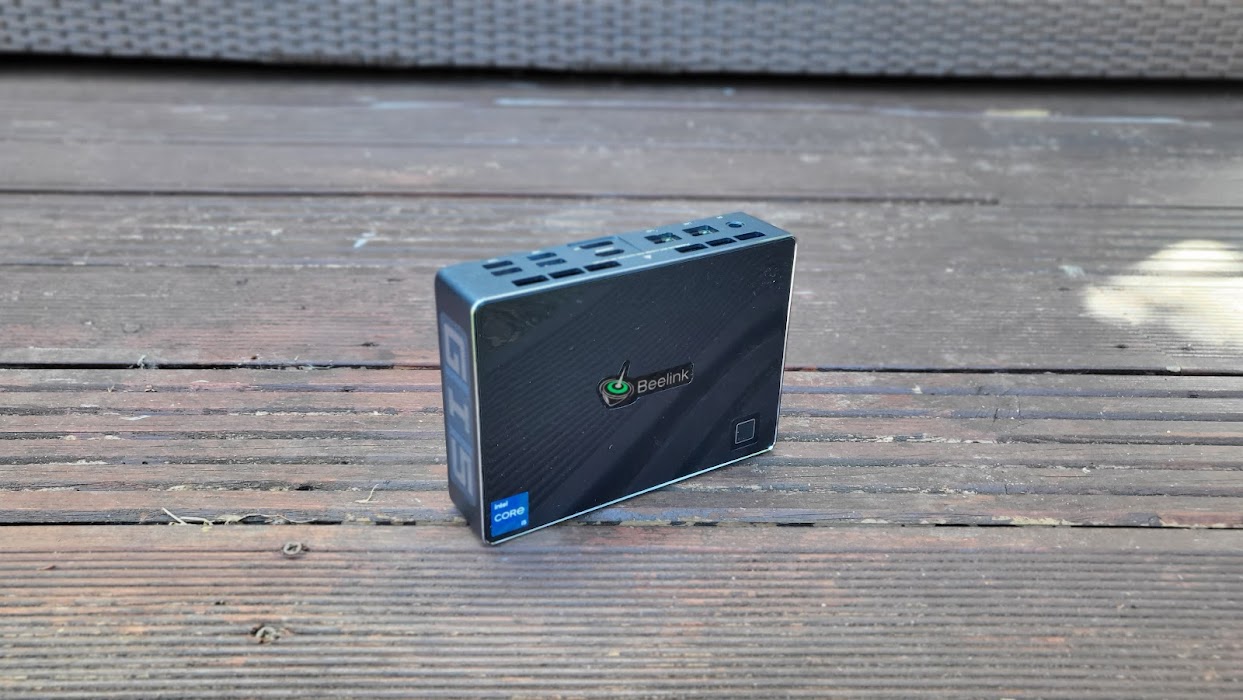
Should I buy the Beelink GTi11?
Buy it if:
You want the nearest alternative to an Intel NUC. This is probably the only reason why you will want to buy this Intel-based mini PC. That and probably if your budget can’t extend beyond $599.
Don’t buy it if:
You’re looking for the best value for money mini PC. Beelink and others offer better deals, thanks to the wider availability of faster AMD-based mini PCs at similar prices.
Also consider:
The obvious rival to the GTi11 is the GTR4 which costs $40 more and offers almost double the CPU performance. It is a no-brainer really especially as it keeps the best bits (dual 2.5GbE LAN, fingerprint reader) and adds a few more (WiFi-6E, Bluetooth 5.2) as well as a 32GB option for those who require even more memory for their workflows.

Désiré has been musing and writing about technology during a career spanning four decades. He dabbled in website builders and web hosting when DHTML and frames were in vogue and started narrating about the impact of technology on society just before the start of the Y2K hysteria at the turn of the last millennium.
